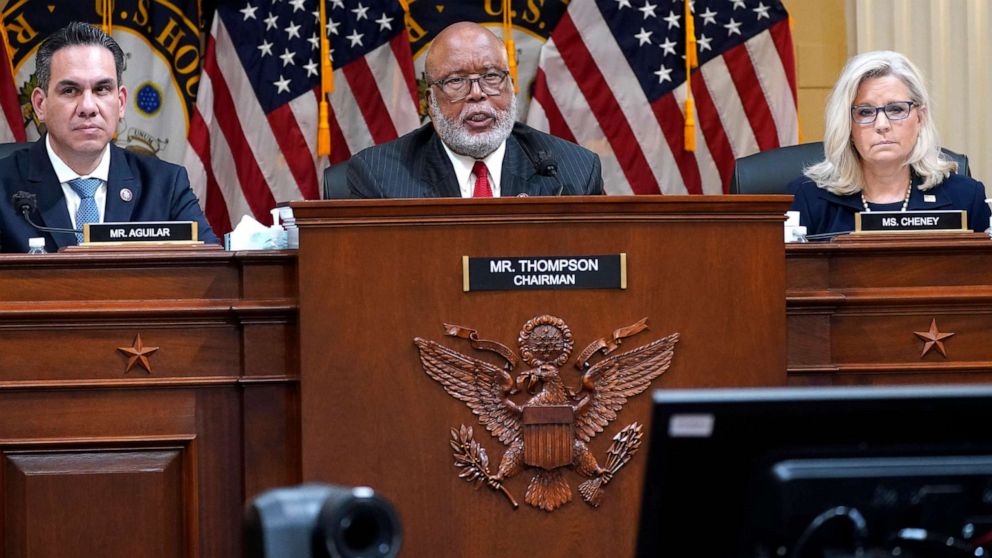
by Lev Tsitrin
The relentless press coverage of the House’ January 6 select committee paints the so-called “Big Lie” as an unprecedented danger to our democracy. Politicians like the Democratic Congresswoman Stephanie Murphy I just heard on the BBC (starting at 32:00 of this very long news segment https://www.bbc.co.uk/sounds/play/w172yfc0lsv5mk8) and columnists like Washington Post’s Max Boot are seething with righteous indignation, and are fuming in disbelief that Trump keeps insisting that the 2020 election was stolen — and, worse still, that the gullible who take it to heart number in the millions, causing the real possibility of Trump’s return to the White House in 2024.
While their fear is understandable — Trump would be a fearsome candidate, so his candidacy is best nipped in the bud, the uniqueness of the danger of the “Big Lie” is, it seems to me, greatly exaggerated. Smearing the opponent is a tactic that is as old as democracy itself, I suspect (it can only be practiced in democracies — autocracies, of course, muzzle any and all criticism, be it fact-based or imaginary.) I am not a historian and cannot rattle off to you the list of instances — but will just offer Mark Twain’s amusing classic called “Running for Governor” in which the opponents’ lies transformed the candidate, in a few weeks of campaigning, from a “person of good character” to, among others, “Infamous Perjurer, the Filthy Corruptionist, the Loathsome Embracer.” Twain wrote a century and a half ago; did anything change?
Now presumably, democracy has some powerful weapons to combat lies: the press, and the courts. And presumably, in this instance they did their job as bulwarks of truth, conclusively debunking all accusations of election fraud. Judges heard claims of irregularities, and dismissed them. Journalists investigated those claims too — and found that they were false. So why isn’t everyone convinced?
I will only speak for myself, so I won’t mention what I haven’t witnessed personally, the mysteriously-arrived suitcases full of ballots, or turning the observers away from the counting sites. I will only talk about reliability of the debunkers of the Big Lie — the federal courts, and of the press.
As any experimenter knows, the faulty measurement tools will produce faulty, and therefore unreliable, results. Calibrating the instruments, and making sure they perform aright, is the essential step in any observation. So how well-calibrated to produce the truth are federal courts, and the press? How reliable are they?
My personal experience shows that neither is up to the task. Instead of adjudicating parties’ argument, as the “due process” clause of the Constitution implies they should, federal judges feel free to concoct and inject the argument of their own into their decisions, so as to decide cases the way they want to, not the way they have to. Sue them for fraud, and they will fight back (and win!) on the basis of self-given, in Pierson v. Ray, right to act from the bench “maliciously and corruptly.” As to the press, it adamantly refuses to report on this bizarre right. The full third of US government is officially and proudly “corrupt and malicious”? That’s none of our business, say the journalists. The mainstream press is as arbitrary as the judges are: it investigates what it wants to investigate, and leaves in the dark what it doesn’t want investigated. It will sift through every word Trump ever said, and through everything he’d ever done, leaving no stone — nay, no grain of sand — unturned; yet the openly-declared corruption of federal judges is not being investigated or reported.
The instruments with which the presumed Big Lie has been investigated — the “corrupt and malicious” judiciary and the less-than-honest press not being the reliably objective tools for elucidating the truth, how do we know that, in this instance, they do not deceive us? We are assured that Trump engaged in Big Lie by those who are themselves prone to prevarication. Can the readings of such defective instruments be trusted?
This is the dilemma of dealing with the so-called Big Lie. Those who describe it as such are by no means the exemplars of truthfulness. “Thou hypocrite, first cast out the beam out of thine own eye; and then shalt thou see clearly to cast out the mote out of thy brother’s eye” is an excellent suggestion for our courts and our press. Some advice cannot be improved upon; the beam of politics having been “cast out” of the judiciary’s, and press’ eye, it may even turn out that the Big Lie is not a lie after all, Trump upholding democracy rather that threatening it. Who knows?
Lev Tsitrin is the founder of the Coalition Against Judicial Fraud, www.cajfr.org








2 Responses
https://i.postimg.cc/02Wn4k51/B2-PO2-JUT5-JBEHMWWDSNF4-SBBNE.jpg
The degradation we permit as citizens is expressed by our representatives and social media. Panderers-in-Power prime purpose is to remain in, and exert that power
They educate we their pawns via mass media Lies-In-Disguise and other means of demeaning pawnography.